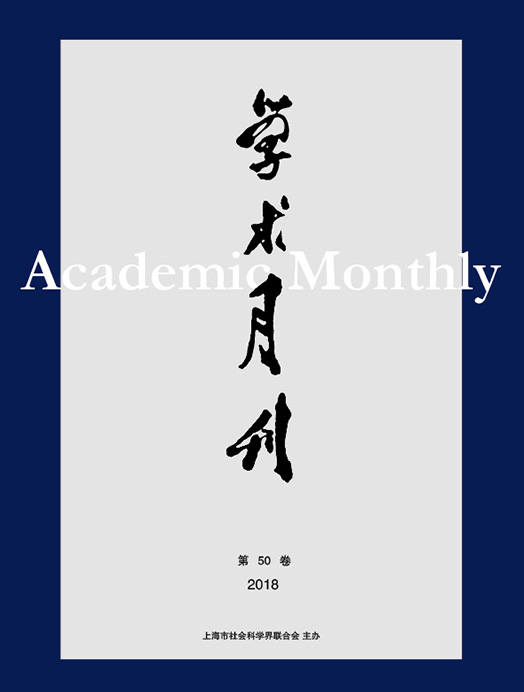Citation:
Linghai CHEN. Legal History inside Poetry: The life and Career of Qing Judges in Poetry Collection of Baochongzhai[J]. Academic Monthly, 2018, 50(11): 162-178.

Legal History inside Poetry: The life and Career of Qing Judges in Poetry Collection of Baochongzhai
-
Abstract
Ben Liang (1771−1847) was a Manchu official who lived through the reigns of Jiaqing (1796−1820) and Daoguang (1820−1850). Throughout his life, he had authored more than 8, 000 poems that had been edited and published in the title ofPoetry Collection of Baochongzhai by his brother. Because Ben Liang had served as both a supervisory official and a vice minister in the Board of Punishment for a long time and his poetry was more akin to diary that contained quite a few poems pertaining to communications with his colleagues, the poetry could be an excellent source for studying the careers, personal pursuits, and daily lives of Qing judges. In addition, the poetry will help us understand the function of the Qing criminal justice. This paper intends to argue that in the Qing, with the exception of legal experts, most officials tended to pay little attention to law due to the overwhelming importance of civil service examination. In their spare times, aside from their primary interests in writing poems and drinking wines, officials in the Ministry of Punishment would also be intrigued by calligraphy, stone and metal carving, collection, gathering, and travel. Therefore, their knowledge on law could not be overestimated. The assertions of some scholars that Qing legal experts had high professional capabilities and enjoyed a promising life of reading statutes are merely a romantic imagination.
-

-
References
-
Access
-
-
[1]
Xiangchun HUANG
. The “Dan” (Boat People) and the Local Society of Fuzhou in the Qing Dynasty. Academic Monthly,
2019, 51(8): 168-178.
-
[2]
Juyuan CHEN
. The Writing of Confucian Classics in Eight-legged Essay in Qing Dynasty. Academic Monthly,
2023, 55(3): 22-34.
-
[3]
Junnan LAI
. Governance of Deed Tax at the Local Level of Qing’s Sichuan: with Particular Attention to Deed Tax Litigations in Nanbu County. Academic Monthly,
2020, 52(10): 100-115.
-
[4]
. . Academic Monthly,
2016, 48(11): 150-163.
-
[5]
. The Discourse Transformation and Constructed Genealogy in Intellectual History. Academic Monthly,
2018, 50(03): 139-150.
-
[6]
. . Academic Monthly,
2017, 49(12): 38-40.
-
[7]
. . Academic Monthly,
2017, 49(05): 135-147.
-
[8]
Dongping ZHOU
, Yifeng XUE
. On a New Theory of the History Regarding the Formation of the Medieval Penalty System of “Five Punishments” against the Backdrop of the Hu-Han Fusion in Northern Dynasty. Academic Monthly,
2021, 53(3): 181-192.
-
[9]
. . Academic Monthly,
2017, 49(10): 9-12.
-
[10]
ZHANG Zhenguo
. A Study on Daofu Asking for Instructions and Daily Government Affairs in the Qing Dynasty— Also on Instructions Writing and Its Characteristics. Academic Monthly,
2023, 55(5): 202-216.
-
[11]
. . Academic Monthly,
2017, 49(09): 145-160.
-
[12]
Zhenzhong WANG
. Business Management and Social Life of Bibliophile Wang Qishu in Early Qing. Academic Monthly,
2019, 51(1): 164-184.
-
[13]
Jing XIE
. The Law Lays Importance on Criminal’s Motive: The “Subjective Evil” in Law of Theft and Its Practice in Qing Dynasty. Academic Monthly,
2021, 53(4): 118-128.
-
[14]
. . Academic Monthly,
2016, 48(07): 99-108.
-
[15]
XIA Zhongyi
. Poetry-History Modelling in the Perspective of Tang History and Tang Legends—— Doubting Qian Zhongshu’s Misjudgement on Chen Yinke. Academic Monthly,
2023, 55(12): 122-135.
-
[16]
NING Zhenjiang
. . Academic Monthly,
2018, 50(6): 121-132.
-
[17]
Yong ZHU
. “Identity between Bureaucratic Establishment and Legal System”: The Way of Great-Power Governance in Ancient China. Academic Monthly,
2019, 51(11): 95-104.
-
[18]
. . Academic Monthly,
2016, 48(05): 133-142.
-
[19]
Jian XU
. Rethinking Triangle-rimed Animal-motif Mirrors: From Antiquarianism, Material History to Historical Archaeology. Academic Monthly,
2022, 54(3): 193-200.
-
[20]
Q. Edward Wang
. Interdisciplinary Practice of the History of Emotions— A Discussion Centering on the Development of the History of Emotions in Japan. Academic Monthly,
2023, 55(6): 169-179.
-
-



 沪公网安备 31010102003103号
沪公网安备 31010102003103号 DownLoad:
DownLoad: